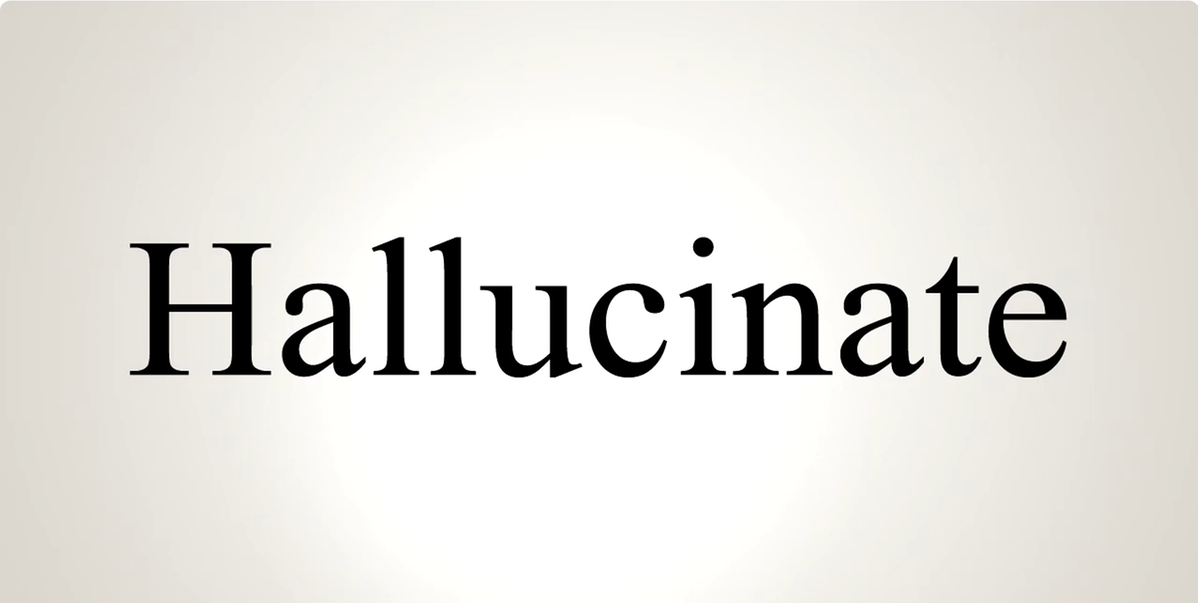'Hallucinate' Cambridge Dictionary's word of 2023


The Cambridge Dictionary has named hallucinate its Word of the Year for 2023, reflecting a surge in interest in generative artificial intelligence, or AI, tools.
The tools, which include ChatGPT, Bard, and Grok, have the ability to produce plausible but false information, often referred to as AI hallucinations.
The Cambridge Dictionary — the world's most popular online dictionary for learners of English — has updated its previous definition of hallucinate to include the new meaning, highlighting that when AI hallucinates, it generates false information.
These AI hallucinations can sometimes appear nonsensical, but can also be misleadingly plausible. Their impact has been observed in real-world instances. In one example, a United States law firm used ChatGPT for legal research, which led to fictitious cases being cited in court. In Google's promotional video for its own Bard system, the AI tool made a factual error about the James Webb Space Telescope.
Wendalyn Nichols, Cambridge Dictionary's publishing manager, said: "The fact that AIs can hallucinate reminds us that humans still need to bring their critical thinking skills to the use of these tools. AIs are fantastic at churning through huge amounts of data to extract specific information and consolidate it. But the more original you ask them to be, the likelier they are to go astray.
"At their best, large language models can only be as reliable as their training data. Human expertise is arguably more important — and sought after — than ever, to create the authoritative and up-to-date information that LLMs (large language models) can be trained on."
The recognition of AI hallucinations in language usage signifies a shift in perceiving and anthropomorphizing AI technology.
Henry Shevlin, an AI ethicist at the University of Cambridge, said: "The widespread use of the term hallucinate to refer to mistakes by systems like ChatGPT provides a fascinating snapshot of how we're thinking about and anthropomorphising AI. Inaccurate or misleading information has long been with us, of course, whether in the form of rumors, propaganda, or 'fake news'.
"Whereas these are normally thought of as human products, hallucinate is an evocative verb implying an agent experiencing a disconnect from reality. This linguistic choice reflects a subtle yet profound shift in perception: the AI, not the user, is the one hallucinating. While this doesn't suggest a widespread belief in AI sentience, it underscores our readiness to ascribe human-like attributes to AI.
"As this decade progresses, I expect our psychological vocabulary will be further extended to encompass the strange abilities of the new intelligences we're creating."
Addressing and mitigating these hallucinations will play a crucial role in the future success and adoption of generative AI, with efforts underway to cross-check outputs with reliable sources and involve human feedback in reinforcement learning to predict and eliminate hallucinations.
Today's Top News
- US projecting its own image on China, Beijing says
- ROK gains nothing by antagonizing China: China Daily editorial
- Government policies expected to facilitate high-quality development: China Daily editorial
- Former top legislator Wu Bangguo dies at 84
- Premier to attend leaders' meetings on East Asia cooperation
- China sees robust travel, spending during holiday






























